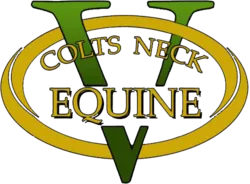Could your horse's non-healing wound be a summer sore?
Read more-
July Newsletter: How Your Veterinarian Can Help with Summer Sores
Category: Newsletter Library
-
June Newsletter: How Your Veterinarian Treats a Hoof Abscess
Category: Newsletter Library
Do you think your horse may have a hoof abscess? Here's how your equine veterinarian treats abscesses.
Read more -
May Newsletter: Care Tips for Your Senior Horse
Category: Newsletter Library
-
April Newsletter: The Benefits of Equine Therapy
Category: Newsletter Library
-
March Newsletter: How Your Veterinarian Can Treat Corns in Horses
Category: Newsletter Library
Wondering what you can do about your horse's painful corns? Your equine veterinarian can help.
Read more -
February Newsletter: When Should Horses Be Vaccinated?
Category: Newsletter Library
-
January Newsletter: How Often Should Horses Have Wellness Exams?
Category: Newsletter Library
-
December Newsletter: The Importance of Eye Exams for Horses
Category: Newsletter Library
-
November Newsletter: What are the Advantages for Clicker Training Horses?
Category: Newsletter Library
-
October Newsletter: How a Coggins Test Can Detect Equine Infectious Anemia (EIA)
Category: Newsletter Library
Concerned about equine infectious anemia? A Coggins Test can help you ensure your horse is healthy.
Read more -
September Newsletter: The Importance of Parasite Control for Horses
Category: Newsletter Library
-
August Newsletter: The Importance of Wellness Exams for Senior Horses
Category: Newsletter Library
-
July Newsletter: What Causes Nerve Damage in Horses?
Category: Newsletter Library
-
June Newsletter: How Often Should You Groom Your Horse?
Category: Newsletter Library
-
May Newsletter: Does Your Horse Have Arthritis?
Category: Newsletter Library
-
April Newsletter: The Importance of Shoes for Your Horse
Category: Newsletter Library
Office Hours
Manalapan Office
Monday:
9:00 am-4:30 pm
Tuesday:
9:00 am-4:30 pm
Wednesday:
9:00 am-4:30 pm
Thursday:
9:00 am-4:30 pm
Friday:
9:00 am-4:30 pm
Saturday:
Closed
Sunday:
Closed
Tabernacle Office
Monday:
Closed
Tuesday:
9:00 am-4:00 pm
Wednesday:
9:00 am-5:00 pm
Thursday:
9:00 am-5:00 pm
Friday:
9:00 am-5:00 pm
Saturday:
Closed
Sunday:
Closed
